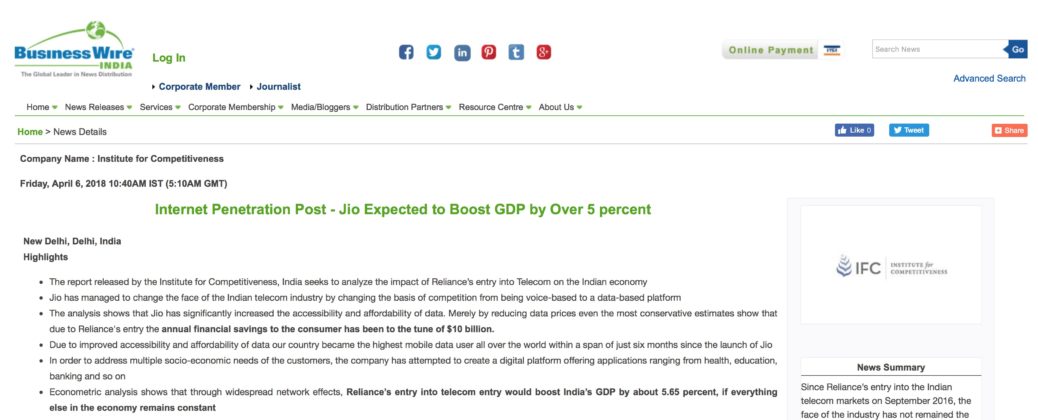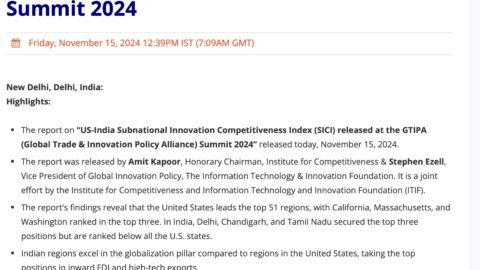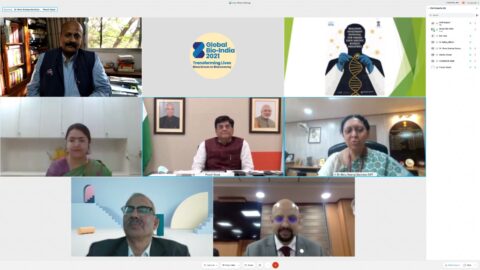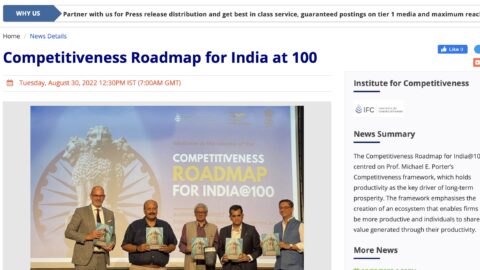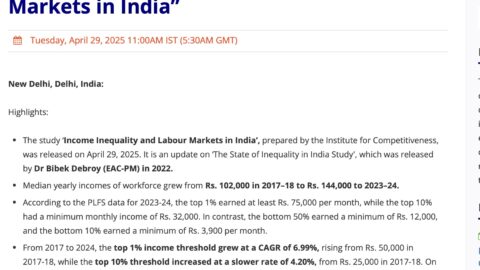News Release: Internet Penetration Post – Jio Expected to Boost GDP by Over 5 percent
April 6, 2018
New Delhi, Delhi, India
Highlights
- The report released by the Institute for Competitiveness, India seeks to analyze the impact of Reliance’s entry into Telecom on the Indian economy
- Jio has managed to change the face of the Indian telecom industry by changing the basis of competition from being voice-based to a data-based platform
- The analysis shows that Jio has significantly increased the accessibility and affordability of data. Merely by reducing data prices even the most conservative estimates show that due to Reliance’s entry the annual financial savings to the consumer has been to the tune of $10 billion.
- Due to improved accessibility and affordability of data our country became the highest mobile data user all over the world within a span of just six months since the launch of Jio
- In order to address multiple socio-economic needs of the customers, the company has attempted to create a digital platform offering applications ranging from health, education, banking and so on
- Econometric analysis shows that through widespread network effects, Reliance’s entry into telecom entry would boost India’s GDP by about 5.65 percent, if everything else in the economy remains constant
Since Reliance’s entry into the Indian telecom markets on September 2016, the face of the industry has not remained the same. It changed the basis of competition by offering free lifetime calling to its consumers in an industry that derived 75 percent of its revenue from voice. Instead, data became the new focal point of competition. Within six months of Jio’s launch, India became the highest mobile data user in the world consuming over 1 billion GB of data every month as compared to 200 million GB earlier. By the end of 2017, its users on an average consume almost 10 GB of data, 700 minutes of voice and 134 hours of video every month. Data usage in the country has soared. India is now only second to China in terms of app downloads. Such levels of digital consumption were unprecedented a year and a half ago.
Impact of Jio’s entry on Indian economy
- Increased accessibility and affordability of data: The first and the most obvious one has been that it has made data accessible and affordable for every user in the country. Average prices per GB of data have dropped from Rs 152 to Rs 10. Such a drastic reduction in data prices has not only brought the internet within the reach of larger proportion of the Indian population but has also allowed newer segments of society to use and experience it for the first time. As per our calculations, even the most conservative estimate shows that due to Jio’s entry the annual financial savings to the consumers would be to the tune of $10 billion.
- Digital Services: Before Jio’s entry there were hardly many avenues where such high levels of data could be expended by a consumer. On the other hand, Jio offers its consumers a wide bouquet of digital applications that address a variety of consumer needs ranging from education, health, entertainment and banking. All of these services form a part of the digital platform through which Jio aims to address multiple socio-economic needs of its customers. This study aims to delve deeper into the company’s unique business model and highlight its societal impact. We do this at three levels: through the shared value perspective, the social progress angle and an econometric analysis.
- Economy-wide impact on growth: In order to quantify the economic impact of Jio’s entry into the Indian telecom market, an econometric analysis was conducted to measure the impact of internet penetration on economic growth. The model used data for 18 states for the decade 2004-14 and showed that a 10 percent increase in internet penetration leads to an increase in GDP per capita by 3.9 percent, if all remains constant. Using the findings, the study found that through network effects, Jio’s entry into the telecom industry will expand India’s per capita GDP by about 5.65 percent, if all else is kept constant in the economy. The effect on GDP growth due to higher internet penetration will not just be a contribution of the telecom sector but also the various externalities that arise out of the internet economy.
To know more about the report: You can download the report from https://www.competitiveness.in/impact-of-reliance-entry/
About Institute for Competitiveness:
Institute for Competitiveness, India is an independent, international initiative centered in India, dedicated to enlarging and disseminating the body of research and knowledge on competition and strategy, pioneered over the last 25 years by Professor M.E. Porter of the Institute for Strategy and Competitiveness, Harvard Business School (ISC, HBS), USA. Institute for Competitiveness, India works in affiliation with ISC, HBS, USAto offer academic & executive courses, conduct indigenousresearch and provide advisory services to corporate and Government within the country. The institute studies competition and its implications for company strategy; the competitiveness of nations, regions & cities; suggests and provides solutions for social problems. Institute for Competitiveness, India brings out India City Competitiveness Report, India State Competitiveness Report, and funds academic research in the area of strategy & competitiveness. For more information, visit https://www.competitiveness.in

